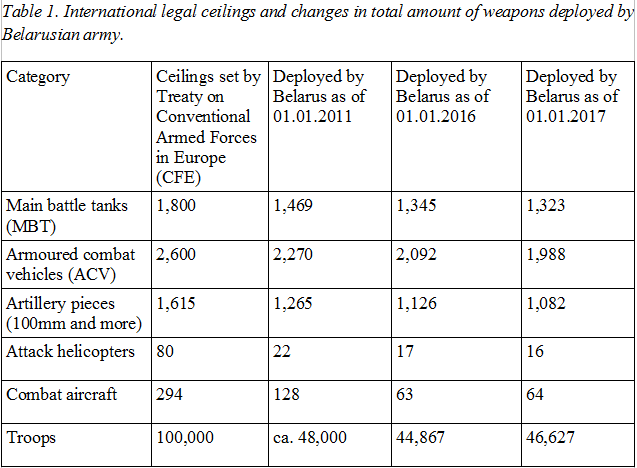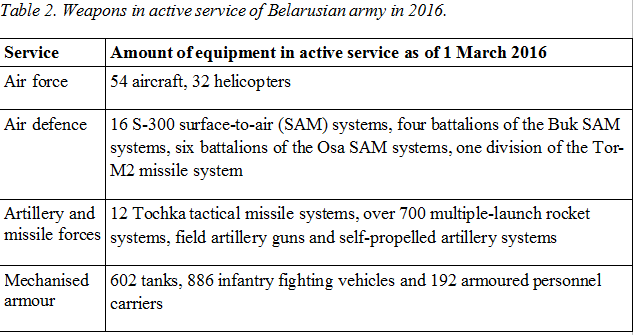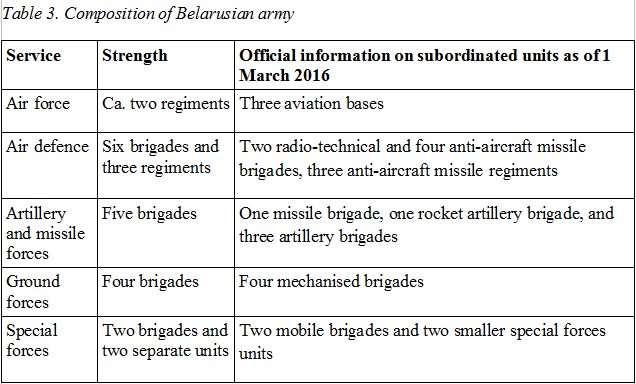Why is the West afraid of the West-2017 exercises?

Lukashenka with a Kalashnikov rifle. Source: solnzepodobny.livejournal.com
On 21 July 2017, Alexander Lukashenka visited Kyiv and met with Ukrainian president Petro Poroshenko. After the meeting, Poroshenko stated that he had received guarantees of security and that Ukraine would never be threatened from Belarusian territory.
However, the very same day, Ukrainian Minister of Defence Stepan Poltorak voiced a different view: ‘Ukraine and the world have a common vision of the possible prospects of the exercises of the Russian Armed Forces. The forthcoming West-2017 exercises are extremely large; they can be used to launch an aggression not only against Ukraine, but against any other country in Europe that shares a common border with Russia.’
Ukraine sounds the alarm
Poltorak was not the only one to voice his concerns: on 7 July 2017, the Chief of General Staff of the Ukrainian Armed Forces, Viktor Muzhenko, also spoke about the possibility of Russian troops remaining in Belarus after the exercises were over. He underlined the high probability of Russia leaving behind hidden stores of weapons, military equipment, and material and technical means in Belarus.
Muzhenko also stressed that the West-2017 exercises pose a threat to Ukraine and NATO: ‘According to our information, the number of Russian troops to participate in the exercises has now been increased from the declared 3,000 to 5,000 people. This can be regarded as a measure to build up Russia’s combat potential on the borders of our state, as well as on the borders of Poland and the Baltic states.’ However, given that no reliable sources were provided to back up these claims, they could very well be provocation against Belarus.

Alexander Lukashenka and Petro Poroshenko. Source: euroradio.fm
Ukraine’s position as a first-line whistle-blower in relation to the Belarusian-Russian exercises is mainly promoted by the Ukrainian military establishment. Their statements are immediately broadcast by Ukrainian and foreign media, which strengthens the image of Belarus as an object or at least a base for Russian military aggression. In this context, Belarus is not seen as an independent actor on the international arena.
These alarmist statements from Ukrainian military leaders can be explained by the fact that the country is undergoing military reforms to bring it up to NATO standards; these reforms include a radical decrease in the number of command staff (especially generals). Thus, Ukrainian generals may be employing tough rhetoric regarding West-2017 in order to create the image of a serious threat, thereby making themselves seem less dispensable.
A Trojan horse
At the same time, certain NATO states have been expressing fears about West-2017 since the beginning of the year. On 14 March 2017, Polish Defence Minister Antoni Macierewicz stated: ‘we should be ready for Russian troops possibly staying on the territory of Belarus after the forthcoming West-2017 exercises.’ Earlier, on 29 April 2017, Estonian Minister of Defence Margus Tsahkna stated that Russia could take advantage of the large-scale military exercises to deploy thousands of soldiers in Belarus as a warning to NATO. He added that he had got his information from Estonian intelligence.

Ben Hodges. Source: republic.com.ua
On 21 July 2017, Lieutenant General Ben Hodges, Commanding General of the U.S. Army in Europe, called West-2017 a ‘Trojan horse’. He added that although Russia speaks of ‘exercises’, nevertheless its forces could end up staying.
Belarus’s only neighbour (apart from Russia, of course) which appears unfazed by the exercises is Latvia. On 19 July 2017, Latvian Foreign Minister Edgars Rinkevics, following a meeting with Uladzimir Makiej in Minsk, stated: ‘We have no more questions about the West-2017 exercises. My Belarusian colleague explained the position of Belarus very thoroughly, and I’m satisfied.’
Dangerous misunderstandings
The main problem with the West-2017 exercises is that they are being held at the exact same time as the Russian large-scale exercise ‘West’. These are two different events, but they have almost the same name and are being held at the same time. Thus, the joint exercises in Belarus are perceived to be part of a larger Russian event. The Ukrainian, Western, and especially Russian media often fail to differentiate between the two exercises.
Notably, this coincidence is reflected in the position of Belarusian Defence Minister Andrej Raŭkoŭ, who once stated that West-2017 would cover a territory from the Barents Sea to Brest. By making such statements, as well as by categorically refusing to comment on the possibility of Russian troops staying in Belarus after the exercises, the Belarusian Defence Ministry only provides fodder for speculation.
Misunderstandings abound: media coverage of the exercises makes it seem like Russia really is holding a large-scale exercise with an offensive agenda in Belarus. However, this is far from reality. The ultimate goal of this information wave is to undermine Belarus’s image and harm its relations with the West and Ukraine. So far, it seems like this endeavour has met with some success.

Lukashenka with a Kalashnikov rifle. Source: solnzepodobny.livejournal.com
A strong need for transparency
Russia certainly benefits from being perceived as a threat. Moreover, it is the only regional actor interested in the deterioration of relations between Belarus and the West: it wants to demonstrate its exclusive influence in Belarus and diminish Belarus’s role on the international arena, showing to be part of the Russian military system. This attitude often encourages the government in Minsk to be relatively complaisant in negotiations concerning political, economic, and military issues; it also pushes it to further integrate with Russia.
If Belarus wants to be perceived as a more or less ‘neutral’ state, it should make West-2017 as transparent as possible. Maximum media coverage with complete explanations would go a long way. Likewise, inviting foreign observers to all stages of the exercises would be the bare minimum needed to assuage sceptics.
Naturally, Russia would not welcome such measures and would surely grumble in retaliation. Alexander Lukashenka has spoken repeatedly about his willingness to provide the best conditions for foreign observers and guarantee the full transparency of the exercises. It is crucial that he stick to this word: at the moment, the image of the Belarusian state depends to a large degree on his success in fulfilling this task.








